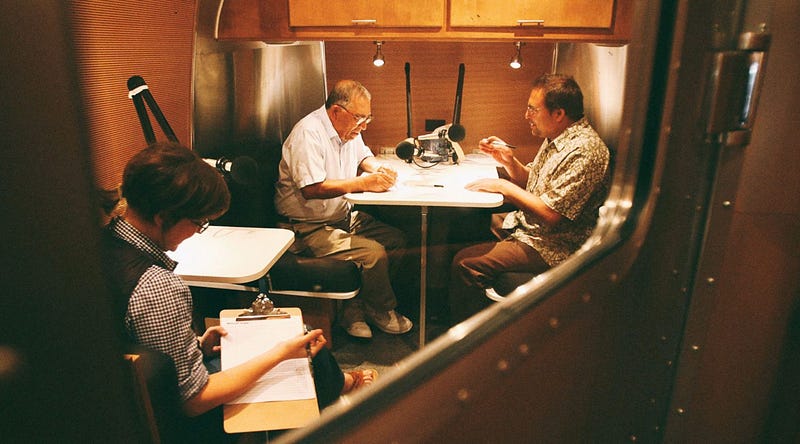
Beginning in April, StoryCorps, a non-profit organization focused on building connections between people of different backgrounds and beliefs, is partnering with the College and the surrounding community to introduce the One Small Step initiative at Hamilton. The impetus for the initiative stems from the College’s Common Ground initiative, which pairs notable names from the world of politics with opposing views for a moderated discussion in an attempt to model productive discourse.
StoryCorps has hosted One Small Step at other institutions and the organization says it hopes the program will complement the College’s other efforts to lessen the polarizing nature of political discourse on campus and in the world.
“There’s a lot of different things contributing to the political divide, including an age divide,” said Philip Klinker, the James S. Sherman Professor of Government, who has played a key role in bringing One Small Step to campus.
“Hamilton is a relatively elite institution and relatively liberal, as well,” said Klinkner. “The surrounding community is more conservative. I think that this initiative will bring up a lot of interesting differences within the community.”
StoryCorps and the College aim to facilitate a dialogue where students, faculty, staff, community members, and others can discuss their beliefs and, vitally, how they came to adopt them.
“Hamilton is not as diverse as we’d like it to be, but more diverse than the surrounding community,” said Klinkner, “I think this has the potential for those who engage with it to promote ideas without a political divide.”
StoryCorps is currently accepting applications to participate in the initiative. The link is available at:
https://www.hamilton.edu/news/calendar/common-ground/one-small-step.
Those interested in participating fill out a questionnaire on the StoryCorps website, after which the organization will evaluate applications and select participants for the discussions, which will be recorded on campus from April 8–17.
StoryCorps say they hope to involve students, faculty, and community members alike. After the conversations are recorded, they will be broadcast on public radio stations. They will also be archived in the Library of Congress.
“One hundred years from now people can listen to the conversations in the archives and understand the issues of today,” said Klinker.

















